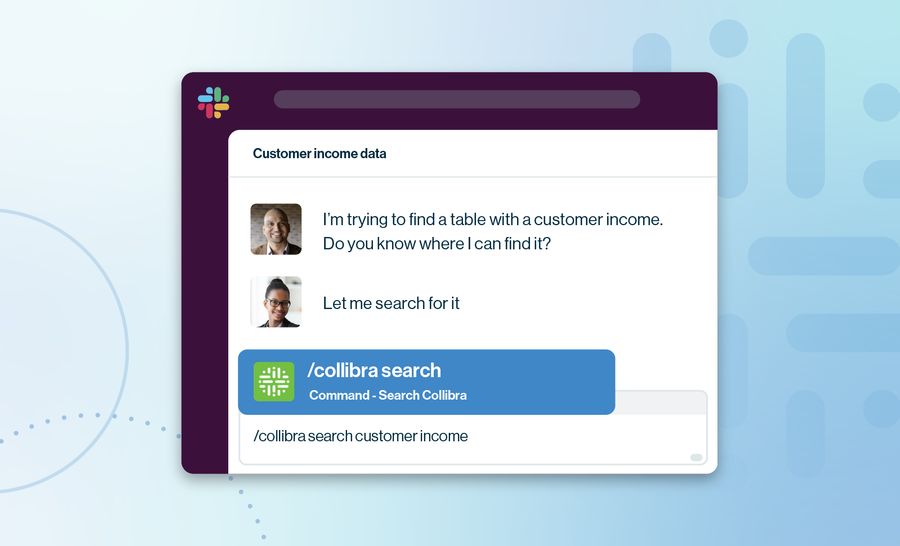The true cost of data silos—and how to break free

Every company talks about being data-driven. But the hard truth is you can’t drive anything if your data is stuck in neutral.
According to our latest research, 40% of professionals like yourself still lack confidence in data, and silos are a major reason why.
Tired of not trusting your data? Get our latest Data Confidence Report
Data lives in too many places, under too many rules, owned by too many people with too few shared standards. And it’s inconvenient. It’s expensive. It creates blind spots, duplication, rework, delays and—perhaps worst of all—missed opportunities.
Sound familiar?
Nearly 4 out of 10 professionals say data silos actively prevent efficient sharing across teams, and 35% cite a lack of alignment across departments. And yet only 21% have prioritized breaking down silos in their governance plans.
It’s a big missed opportunity.
40% of professionals still lack confidence in their data
Source: Collibra.
What’s the real cost of siloed data?
Let’s put it in plain terms:
- Your teams don’t know what data exists.
- If they find it, they can’t trust it.
- And if they can trust it, they still might not have the access or clarity they need to act on it.
That’s a recipe for slow decisions, stalled AI projects, compliance headaches and strategy built on guesswork, instead of insight.
And with 32% citing limited visibility as a top concern, many departments are making high-stakes decisions in the dark.
Even when data is shared, inconsistent standards and definitions derail its usefulness. Marketing's “customer” doesn’t match Sales. Sales metrics contradict Operations. It’s no wonder 35% of organizations report a lack of alignment across departments. The result? Redundant work, misaligned insights and a breakdown of trust.
And here’s the kicker: Only 21% of organizations — 1 in 5! — list reducing information silos as a top priority in their governance improvement plans. That’s a glaring disconnect between what’s holding you back and what you’re doing about it.
The solution to data distrust: Unified governance
The upshot of these bleak data points is this: You and your colleagues don't trust your data. And it's hurting your business.
It doesn't have to stay that way. Leading organizations are looking for solutions. They’re adopting unified governance to move fast, stay compliant and build for the future, without forcing rigid centralization.
Here’s what that looks like in practice:
- Shared definitions and metadata standards. A common vocabulary for data—so “customer churn,” “revenue,” and “risk” mean the same thing across the business.
- Federated stewardship. Ownership stays in the hands of the teams who know the data best, but it happens within a clear enterprise framework. Local control, global alignment.
- Automated discovery and access controls. Data can’t help anyone if no one can find it. Leading organizations automate discovery, permissions and usage, cutting manual effort and compliance risk at the same time.
- Governance in place. Instead of moving data to a central system, high-confidence organizations apply governance directly to the source, wherever the data lives. That means no duplication, more flexibility and better support for hybrid and multi-cloud environments.
- Lineage and usage tracking. Confidence comes from context. Tracking how data flows, who’s using it and how it’s changing builds the trust needed to drive AI, analytics and day-to-day decisions.
According to the report, organizations with high data confidence are more than twice as likely to have unified governance across departments (73% vs 33%).
Unified governance isn’t just a better way to manage data. It’s the only way to make data worth managing.
The takeaway?
Data silos are a strategic liability. Breaking them down is about solving for visibility and velocity. It’s how your organization can move from firefighting to future-proofing.
So ask yourself: Is your data governed by its systems—or by your strategy?
With Collibra, you can unify governance across every source, system and user, so your teams can trust, comply and consume data with confidence.
Tired of silos? Get our latest Data Confidence Report
In this post:
Related articles

Data GovernanceFebruary 14, 2025
Why we are the data and AI leader for you

Data GovernanceJuly 28, 2025
Your new shortcut to trusted data: Collibra’s two-way Slack Integration

Data GovernanceMay 24, 2022
The journey to data catalog and governance success: A customer perspective

Data GovernanceOctober 12, 2023
Improved user provisioning leads to calmer seas and smoother sailing
Keep up with the latest from Collibra
I would like to get updates about the latest Collibra content, events and more.
Thanks for signing up
You'll begin receiving educational materials and invitations to network with our community soon.
